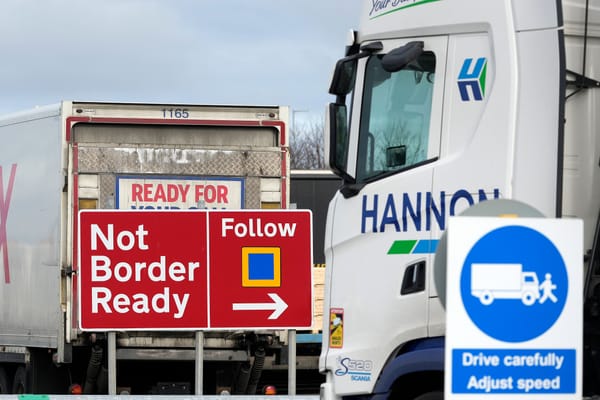The announcement of the Windsor Framework, a deal between the European Union and Britain over the status of Northern Ireland, tells us much about the paradoxical politics of Brexit. The deal came within two weeks of the resignation of Nicola Sturgeon, Scotland’s first minister and leader of the Scottish National Party. Even as Westminster relinquishes control over Northern Ireland, the prospects for Scottish independence look as distant as ever. Scottish nationalism has been left in disarray after Sturgeon’s surprise resignation, and this despite the fact that Scotland remains the most pro-EU nation within the fragmented United Kingdom.
How is it that Brexit can loosen the union with Ireland while shoring up the union with Scotland? To understand this paradoxical dynamic is to understand the politics of national sovereignty today, and what is involved in seceding from the supranational structures created in the era of peak globalization. In particular, the paradoxical effect by which Brexit enhances the prospect of Irish reunification while stymieing the cause of Scottish secession, makes clear that there is no government or political party in Britain (or, indeed, anywhere else) that is committed to the cause of national sovereignty and political independence.
The Windsor Framework can be viewed as the long culmination of political and diplomatic efforts to contain the effects of Brexit. It is seen as a personal victory for Rishi Sunak, enabling the British premier to neutralize the Brexit ultras in his governing Conservative Party, and thereby forestall the risk of a backbench rebellion that might otherwise sweep Boris Johnson back into power. Many commentators have taken the deal to signal the long, slow return to political normalcy not only in British politics, but also in relations between Britain and the European Union. Yet far from neutralizing Brexit, the new agreement only shows that the question of British—and Irish—sovereignty remains unresolved.
The announcement of the framework on Feb. 27 enshrines an updated agreement between Britain and the European Union, which helps solidify the Northern Ireland Protocol. The protocol was the arrangement originally devised to govern the status of the six British counties of Northern Ireland in a way that would allow Britain to leave the European Union as voted for by the majority in 2016, but without prejudicing the intergovernmental and intercommunal power-sharing arrangements enshrined in the 1998 Good Friday Agreement.
